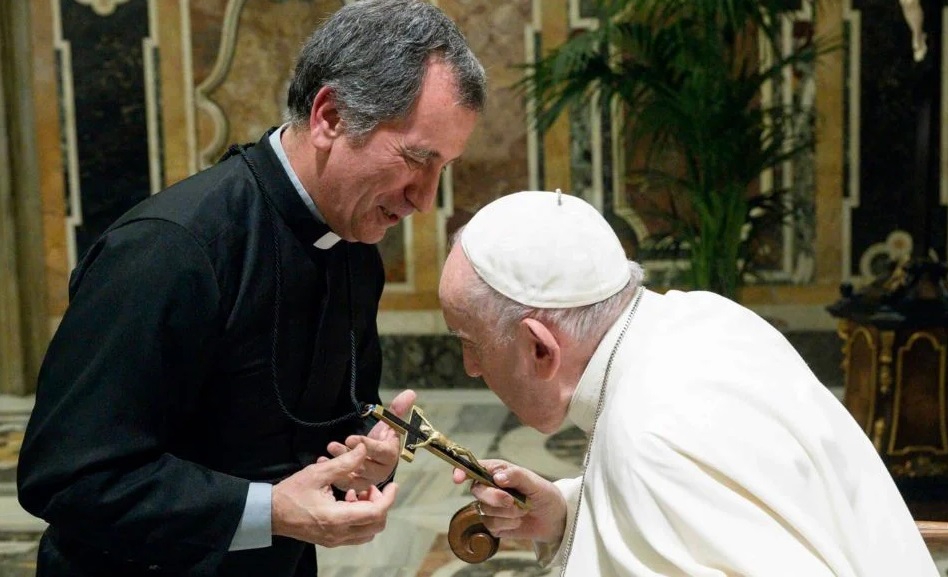Pope Francis: A Jesuit Heart, An Oblate Soul
The passing of Pope Francis invites us to reflect on a papacy that, though Jesuit in formation, often felt deeply Oblate, marked by simplicity, humility, and a preference for the poor.
Simplicity that Speaks
From his early years as Archbishop of Buenos Aires, Bergoglio chose to live close to the people. He rode the bus, visited villas miserias, and spent time with those who often went unnoticed. As a Jesuit, his formation taught him to seek God in all things, especially the poor. That inner freedom, so characteristic of Ignatian spirituality, shaped a Papacy rooted in discernment, humility, and pastoral courage.
As Pope, he declined the Apostolic Palace in favor of the Vatican guesthouse, Casa Santa Maria, not for show, but to remain accessible and rooted in simplicity. He visited the prisons and refugee camps before appearing at Cathedrals or Palaces. He spoke quietly, but with authority, drawing the Church’s attention, again and again, to the forgotten faces of our world. His way of conducting himself must have echoed in the heart of every Oblate. It was as if he had taken St. Eugene’s call “to leave nothing undared for the Gospel” and simply begun to live it.
As Oblates, we are dedicated to serving those on the peripheries of society, a mission that resonates deeply with Pope Francis’ vision of the Church as a “field hospital.” We are not called to wait for the poor to come to us, we are sent to them: “Evangelizare Pauperibus Misit Me.” His life reminded us that the Church must go out, risk discomfort, and meet Christ in those who suffer.
Evangelizing the Poor with Joy
His Address to the 37th General Chapter made this vision unmistakably clear. He urged us to bring the Gospel of hope, joy, and peace to a world torn by division and wounded by injustice. “A world that, on the one hand,” he said, “seems to have reached seemingly unreachable goals, yet on the other is still enslaved by selfishness and full of contradictions and divisions. The cry of the earth and that of the poor, wars and conflicts that shed blood on human history, the distressing situation of millions of migrants and refugees, an economy that makes the rich ever richer and the poor ever poorer, are some aspects of a scenario where only the Gospel can keep the light of hope burning.”
This was not mere rhetoric. Pope Francis lived it. Bringing the Gospel of hope, joy, and peace is a sine qua non of evangelization and service to the poor–a truth recognized by both the Oblate Charism and the witness of Pope Francis.
Called to the Peripheries
Pope Francis consistently challenged us as Oblates to continue to serve those on the peripheries. He called it a tragedy when the Church’s ministers forget the marginalized. In him, we saw not only a Pope, but a brother in mission, someone who understood that Christ is most clearly revealed where the world tries least to look. His witness now becomes a motivation to our Charismatic Family. His humility, his love for the poor press us to return to the heart of our Charism. In a time when it’s easy to be distracted or discouraged, Pope Francis remained focused on the essential: the Gospel lived simply, proclaimed boldly, and shared generously with the poor.
As we reflect on Pope Francis’s example, let us offer a prayerful wish and appeal to the entire Charismatic family to pray for the Conclave, which begins on Wednesday, May 7th. May the Holy Spirit guide the Cardinals in choosing a path that continues to uphold the values of humility, service, and love for the poor, as exemplified by Pope Francis.
By Henricus Asodo, OMI – Assistant General
Published on the OMI World website


